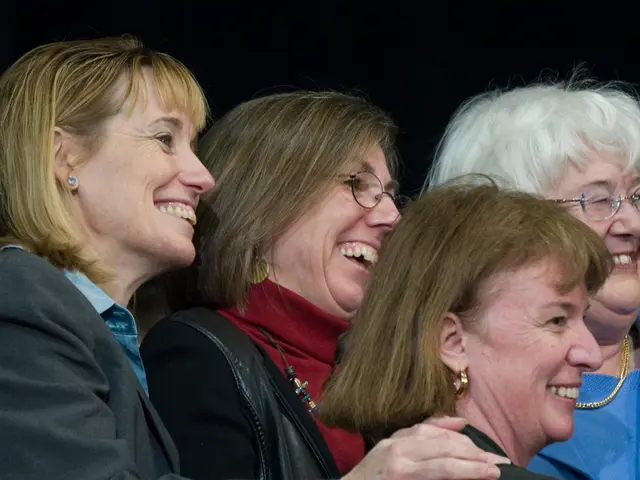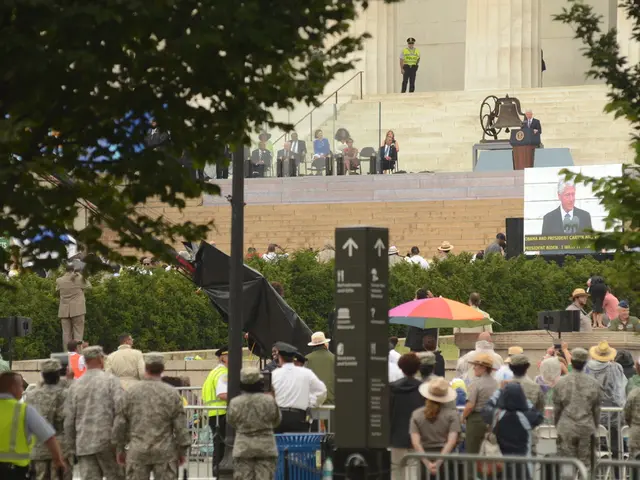"Federal Employees Faced With Pressure to Convert Religiously"
The US Office of Personnel Management (OPM) has released a memo titled "Protecting Religious Expression In the Federal Workplace," causing a stir in the political landscape. The memo, issued on July 28, 2025, sets guidelines for religious expression among federal employees, aiming to balance workplace order with the protection of religious freedom.
The key provisions of the memo include:
- Religious Expressions: Federal employees may display religious items in their workspaces and engage in prayer, religious gatherings, and discussions during non-duty hours without fear of removal.
- Religious Conversations and Invitations: Employees are allowed to discuss their religious beliefs, including attempts to persuade coworkers, provided the dialogues are polite and respectful. Invitations to religious events can be extended to colleagues, including supervisors posting notices on bulletin boards.
- Public-Facing Roles: Employees in public-facing roles, such as national park rangers or Veterans Affairs doctors, may express their faith openly, even joining in prayer with the public. However, when acting in their official capacities, employees’ religious speech may be limited to avoid the government appearing to endorse a religion.
- Limits and Protections: Agencies must allow religious expression to the greatest extent possible unless it imposes an "undue hardship" on operations. Agencies are directed to review and revise internal policies to comply with these protections and refrain from disciplining employees for religious expression that is not harassing.
The memo cites Title VII of the Civil Rights Act of 1964, emphasizing that religion includes all aspects of religious observance and practice, but excludes social, political, or economic philosophies or personal preferences not grounded in religious belief.
However, the memo has faced criticism from various quarters. Constitutional law experts have stated that the memo doesn't set any boundaries about what is permissible. The memo also does not address the potential for retaliation against federal employees who do not participate in their boss's preferred religious activities.
Critics, including advocates of free speech and people of faith, have labelled the memo another step towards Christian nationalism. The vast majority of the examples of permitted activities in the memo are related to Christianity, while about 6 or 7% of Americans belong to religions other than Christianity, and a full 28% are not religiously affiliated at all.
Notably, only one mention each of an employee displaying the Star of David and a mezuzah, symbols of Judaism, are included in the memo, with no other religions mentioned. The memo seems to have little concern for the impact on religious minorities or religiously unaffiliated people in the federal workplace.
The memo's focus is overwhelmingly on the ability of Christians to promote their religion without pushback. This has led to concerns about the potential for harassment, particularly given the permission for coworkers to attempt to "persuade" their colleagues that their own religious views are correct.
The memo has sparked a heated debate, with critics arguing that it could lead to a divisive and intrusive religious environment in the federal workplace, while supporters maintain that it is a necessary step to protect the religious freedom of federal employees.
The heated debate surrounding the "Protecting Religious Expression In the Federal Workplace" memo has extended to general-news and politics, with critics contending that the memo, primarily focusing on Christianity, could potentially lead to a divisive and intrusive religious environment for religious minorities and those who are not religiously affiliated. Meanwhile, supporters argue that the memo is essential for safeguarding the religious freedom of federal employees in health discussions and political landscape.








